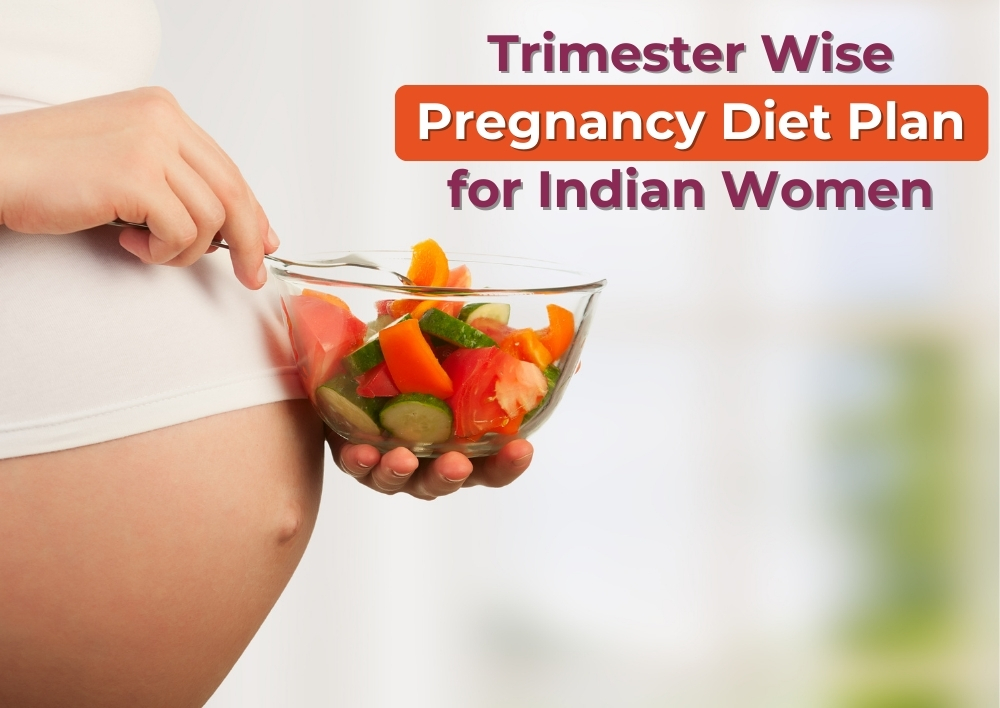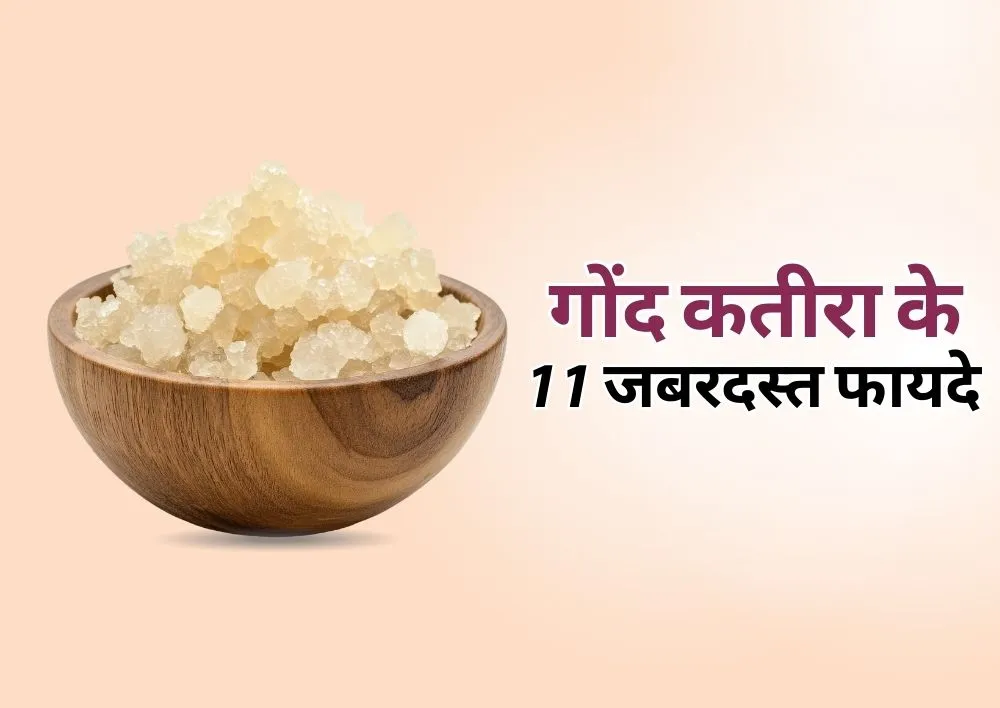Trimester Wise Pregnancy Diet Plan for Indian Women
Summary
A healthy, well-balanced diet in pregnancy is important for the well-being of the mother-to-be and her baby. This is because whatever the female consumes during pregnancy is the primary source of nutrition for the baby. A pregnancy diet chart should contain a variety of healthy foods like fruits, vegetables, and proteins to provide the important nutrients and nourishment a baby requires for growth and development. According to the best gynaecologist in Gurgaon at Miracles Apollo Cradle, When it comes to eating healthy during pregnancy, deciding which foods are the most useful for you and your baby’s health can be challenging. In this blog post, we'll explore the key components of a diet chart for pregnant women, providing you with detailed information to ensure both you and your baby are getting the essential nutrients needed during this critical period.
Trimester Wise Indian Diet Chart For Pregnancy
The Indian diet offers a variety of wholesome foods that can provide the necessary nutrients needed for both the mother and the baby. Here’s a detailed Indian diet chart for pregnant women tailored for each trimester to help expectant mothers ensure they are getting the necessary nutrients.
First Trimester (Weeks 1-12)
During the first trimester, the body experiences significant changes, and it’s important to focus on nutrition to support these changes and the baby’s early development.
Key Nutrients:
-
Folic Acid: Important for preventing neural tube defects. Sources include leafy greens, lentils, and fortified cereals.
-
Iron: Supports increased blood volume and prevents anemia. Sources include spinach, beans, and fortified grains.
-
Vitamin B6: Helps with nausea and morning sickness. The Sources include bananas, nuts, and whole grains.
Meal Plan:
-
Breakfast: A bowl of the poha with vegetables and a glass of orange juice.
-
Mid-Morning Snack: A few almonds and a banana.
-
Lunch: Chapati, a serving of dal, a bowl of spinach sabzi, and a side of yogurt.
-
Afternoon Snack: Fresh fruit salad or a glass of buttermilk.
-
Dinner: Brown rice with mixed vegetable curry and a bowl of salad.
-
Before Bed: A glass of lukewarm milk with a pinch of turmeric.
Second Trimester (Weeks 13-26)
The second trimester is usually considered the most comfortable phase of pregnancy. The baby’s growth increases, so energy and nutrient intake must increase.
Key Nutrients:
-
Calcium: Beneficial for the development of strong bones and teeth. The rich sources of calcium include dairy products, tofu, and almonds.
-
Protein: Protein-rich foods in pregnancy support the growth of fetal tissue, including the brain. Sources include eggs, lean meat, lentils, and beans.
-
Omega-3 Fatty Acids: It is important for brain development. The rich sources of omega 3 fatty acids include flaxseeds, walnuts, and fish.
Meal Plan:
-
Breakfast: Oats cooked with milk, topped with nuts and fruits.
-
Mid-Morning Snack: A smoothie made with yogurt, spinach, and a banana.
-
Lunch: Quinoa salad with mixed vegetables, chickpeas, and paneer curry.
-
Afternoon Snack: Roasted chana or a small bowl of sprouts salad.
-
Dinner: Whole wheat chapati with chicken curry or tofu (for vegetarians) and a bowl of vegetable soup.
-
Before Bed: A glass of warm milk with dates.
Third Trimester (Weeks 27-40)
This is the final trimester that focuses on the baby’s fast growth and preparation for childbirth. The mother’s body also needs extra energy to manage with the increasing weight and prepare for labor.
Key Nutrients:
-
Iron and Protein: Continue to be important for blood production and muscle strength.
-
Vitamin C: Helps in the absorption of iron. The sources of vitamin C include citrus fruits, strawberries, and bell peppers.
-
Fiber: To prevent constipation. The rich sources of fiber include whole grains, fruits, and vegetables.
Sample Meal Plan:
-
Breakfast: A bowl of ragi oats with a banana and a glass of milk.
-
Mid-Morning Snack: A handful of walnuts and a piece of fruit.
-
Lunch: Brown rice with fish curry or lentil curry (for vegetarians) and a bowl of mixed vegetable salad.
-
Afternoon Snack: A small bowl of yogurt with honey and chia seeds.
-
Dinner: Multigrain chapati with a bowl of dal and a serving of steamed vegetables.
-
Before Bed: A glass of warm milk with saffron.
Foods To Eat During Pregnancy
Eating a balanced and nutritious diet during pregnancy is important for the health of both the mother and the developing baby. Here are some foods and beverages that are particularly beneficial during pregnancy:
Fruits and Vegetables
-
Leafy Greens: Spinach, kale, and broccoli are high in folate, iron, and calcium.
-
Berries: Blueberries, strawberries, and raspberries are rich sources of antioxidants and vitamins.
-
Citrus Fruits: Oranges and grapefruits are rich sources of vitamin C.
Proteins
-
Lean Meats: Chicken, turkey, and lean cuts of beef and pork offer high-quality protein and iron.
-
Fish: Salmon, sardines, and trout are rich in omega-3 fatty acids but should be consumed in moderation due to potential mercury content.
-
Eggs: A great source of protein, vitamins, and minerals, including choline, which is important for brain development.
-
Legumes: Beans, lentils, and chickpeas provide protein, fiber, iron, and folate.
Dairy Products
-
Milk: Provides calcium, vitamin D, and protein.
-
Yogurt: Contains probiotics, calcium, and protein.
-
Cheese: Offers calcium and protein, but should be eaten in moderation due to high fat content.
Whole Grains
-
Whole Wheat Bread: Provides fiber, iron, and B vitamins.
-
Oats: Rich in fiber, iron, and B vitamins.
-
Quinoa: A complete protein source, rich in fiber, and various nutrients.
Nuts and Seeds
-
Almonds: Offer healthy fats, protein, and calcium.
-
Chia Seeds: This is a rich source of omega-3 fatty acids, fiber, and protein.
-
Flaxseeds: Provide omega-3 fatty acids and fiber.
Healthy Fats
-
Avocado: High in healthy fats, fiber, and folate.
-
Olive Oil: A good source of healthy monounsaturated fats.
Beverages
-
Water: Essential for staying hydrated and supporting increased blood volume during pregnancy.
-
Milk: Provides calcium, vitamin D, and protein.
-
Herbal Teas: Certain herbal teas like ginger tea can help with nausea.
Special Considerations
-
Prenatal Vitamins: In addition to a balanced diet, taking prenatal vitamins can help ensure you're getting enough key nutrients like folic acid, iron, and calcium.
-
Avoid Certain Foods: Avoid unpasteurized dairy products, certain fish with high mercury levels, raw or undercooked meats, and deli meats to reduce the risk of foodborne illnesses and other health concerns.
Ensuring a varied and balanced diet is key to a healthy pregnancy. Consult the best gynaecologist near you for personalized advice.
Food To Avoid in Pregnancy
During pregnancy, it is important to maintain a healthy diet to support the health of both the mother and the baby. Here are some beverages and foods to avoid while pregnant:
Foods to Avoid
-
Raw or Undercooked Meat: Includes beef, poultry, and pork. Avoid undercooked meat to prevent exposure to toxoplasmosis, salmonella, and other harmful bacteria.
-
Deli Meats: Can contain listeria, which can cause miscarriage.
-
Raw Seafood: Such as sushi, sashimi, and raw oysters, to prevent infections like listeria and toxoplasmosis.
-
High-Mercury Fish: Mercury can harm the developing nervous system of the baby. So, avoid high mercury fish and include shark, swordfish, king mackerel, and tilefish.
-
Smoked Seafood: Unless it's canned or shelf-stable, as it can contain listeria.
-
Raw Eggs: Found in some homemade Caesar dressings, mayonnaise, and certain desserts like tiramisu and mousse. They can contain salmonella.
-
Unpasteurized Dairy Products: Includes certain soft cheeses like Brie, Camembert, Roquefort, and feta, as they can contain listeria.
-
Unwashed Fruits and Vegetables: Can be contaminated with toxoplasmosis or other harmful bacteria.
-
Caffeine: Limit coffee intake to about 200 mg per day to reduce the risk of miscarriage and low birth weight.
-
Processed Junk Foods: High in sugar, unhealthy fats, and calories, which can lead to excessive weight gain and complications like gestational diabetes.
Beverages to Avoid
-
Alcohol: No safe level of alcohol has been established during pregnancy. Alcohol can cause fetal alcohol syndrome and other developmental disorders.
-
Unpasteurized Juices: Can contain harmful bacteria.
-
Sugary Drinks: Such as soda and fruit drinks, can lead to excessive weight gain and gestational diabetes.
-
Energy Drinks: Often contain high levels of caffeine and other ingredients not recommended during pregnancy.
-
Certain Herbal Teas: Some herbs can cause complications, so it's best to consult with a gynecologist before consuming herbal teas.
Consuming a balanced diet with well-cooked and thoroughly washed foods, along with avoiding the above items, can help ensure a healthy baby pregnancy.
General Tips for a Healthy Pregnancy Diet
-
Hydration: Drink plenty of water throughout the day to stay hydrated and support increased blood volume during pregnancy.
-
Small, Frequent Meals: Eat smaller, more frequent meals to avoid heartburn and maintain energy levels.
-
Avoid Processed Foods: Minimize intake of processed and junk foods that offer little nutritional value.
-
Limit Caffeine: Reduce caffeine consumption as it can affect the baby’s development.
-
Consult a Doctor: Always consult with a gynecologist before making any significant changes to your diet.
Conclusion:
A well-balanced Indian pregnancy diet chart for pregnant women can provide the essential nutrients needed for a healthy pregnancy. By including a variety of wholesome foods, pregnant women can ensure they are supporting their health and the development of their baby. Remember, every pregnancy is unique, so it’s important to tailor the diet to individual needs and preferences.
If you're expecting and looking for a personalized meal plan for pregnant women tailored to your specific needs, Miracles Healthcare is here to help. Our expert nutritionists and best gynae doctor in Gurgaon can guide you through every step of your pregnancy, ensuring you and your baby receive the best possible care. Contact us today to schedule a consultation and embark on a healthy pregnancy journey.
Frequently Asked Questions
First trimester: folate-rich foods, fruits, and light meals.
Second trimester: protein, calcium, and iron-rich foods.
Third trimester: fiber, omega-3s, and energy-boosting foods.
A balanced diet with whole grains, fruits, vegetables, lean proteins, healthy fats, and plenty of fluids is the best.
All trimesters matter, but the first trimester is important for the baby’s organ development and requires special care.
Include folic acid-rich foods, vitamin B6 for nausea, fresh fruits, and easily digestible meals.
Avoid raw seafood, undercooked meat, unpasteurized dairy, excess caffeine, and alcohol.
Calcium supplements are usually recommended from the second trimester, but should be started as per the doctor’s advice.
Papaya and pineapple in excess are generally avoided because of potential risks.
Milk can be consumed from the start of pregnancy to support calcium and protein needs.
Miracles Apollo Cradle in Gurgaon has a team of the best gynaecologists offering expert guidance on pregnancy diet and care.
















Was the information useful?
1 0